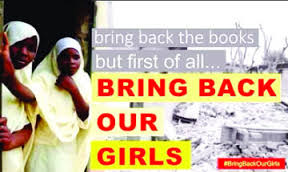A
abujagirl
Guest
On Monday, it will be exactly three months since Boko Haram kidnapped over two hundred schoolgirls from the town of Chibok, in Nigeria. Briefly a cause célèbre, the girls have now been mostly forgotten by the citizens, celebrities, and politicians in other countries who once passionately pled for their release, flooding the Internet with over four million tweets marked #bringbackourgirls. A viral hashtag, it seems, is a fever that breaks quickly. Meanwhile, the girls, last seen in a video released a month after they were captured, remain in captivity under what are, at best, difficult and inhumane conditions.
The #bringbackourgirls moment did, however, accomplish something important: it forced the Nigerian government to acknowledge the abduction. At first, the government had tried to make the problem go away by denying that it even existed. The day after the kidnapping, the military claimed that it had rescued almost all of the girls, a blatant falsehood given that no rescue effort had been even attempted. Three weeks went by before President Goodluck Jonathan was even willing to meet with the families of the abductees, and even then he shifted the blame for the girls’ plight to their families, implying that they had failed to sufficiently coöperate with the authorities. It was an entire month before he was willing to accept foreign assistance. Without intense pressure from the outside, it is likely that almost nothing would have been done, which is precisely why local activists first created the hashtag.
This mysterious reluctance to respond to the kidnapping reflects a paranoid belief, shared by many supporters of the President, that it was actually a hoax cooked up by northern politicians to embarrass Jonathan less than a year before national elections. This explains the behavior of the First Lady of Nigeria, Patience Jonathan, who reportedly accused advocates for the families of the victims of being members of Boko Haram, and encouraged the arrests of two of their leaders.
Click here to read more
SOURCE: #TheNewYorker
#Bokoharam #PatienceJonathan #GoodluckJonathan

The #bringbackourgirls moment did, however, accomplish something important: it forced the Nigerian government to acknowledge the abduction. At first, the government had tried to make the problem go away by denying that it even existed. The day after the kidnapping, the military claimed that it had rescued almost all of the girls, a blatant falsehood given that no rescue effort had been even attempted. Three weeks went by before President Goodluck Jonathan was even willing to meet with the families of the abductees, and even then he shifted the blame for the girls’ plight to their families, implying that they had failed to sufficiently coöperate with the authorities. It was an entire month before he was willing to accept foreign assistance. Without intense pressure from the outside, it is likely that almost nothing would have been done, which is precisely why local activists first created the hashtag.
This mysterious reluctance to respond to the kidnapping reflects a paranoid belief, shared by many supporters of the President, that it was actually a hoax cooked up by northern politicians to embarrass Jonathan less than a year before national elections. This explains the behavior of the First Lady of Nigeria, Patience Jonathan, who reportedly accused advocates for the families of the victims of being members of Boko Haram, and encouraged the arrests of two of their leaders.
Click here to read more
SOURCE: #TheNewYorker
#Bokoharam #PatienceJonathan #GoodluckJonathan


